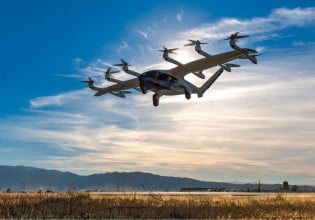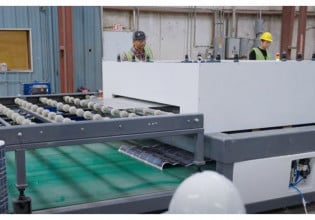Solar Impulse took off from Abu Dhabi in the United Arab Emirates early on Monday with businessman and pilot Andre Borschberg at the controls for the 400-kilometer (250 mile) flight. The journey was expected to take about 12 hours, but high winds of up to 11 knots delayed its landing, forcing Borschberg to fly in a holding pattern above Muscat until they dropped to safe levels. The aircraft touched down in Oman at 16:14 GMT after a 12-hour flight.
The plane is expected to be on the ground for just eight hours before it takes off again -- this time with pilot Bertrand Piccard in charge -- bound for Ahmedabad in India. The potentially historic flight had originally been due to take off on March 1 but its departure was postponed because of concerns about the weather after strong dust storms created hazy conditions.
"We have had a lot of sandstorms in Abu Dhabi, and also a lot of wind, sea breezes, higher than the limit," said the team's meteorologist Luc Truellemans in an interview posted on Twitter and YouTube. By Monday morning, the skies had cleared sufficiently for takeoff, though there was a slight delay while technical checks were carried out, as pilot Andre Borschberg explained on Twitter.
On the plane’s 35,000-kilometer route, pilots Bertrand Piccard and Andre Borschberg will take turns in the cockpit as the aircraft makes it way eastwards from Abu Dhabi, stopping in cities including Muscat, Oman; Ahmedabad and Varanasi in India; Mandalay in Myanmar; Chongqing and Nanjing in China; and Hawaii, Phoenix and New York in the United States, before crossing the Atlantic on its way back to Abu Dhabi, where it is expected to arrive in mid-2015.
The most challenging leg of the journey will be a non-stop flight of five days and nights across much of the Pacific Ocean from China to Hawaii. The plane, powered by 17,248 solar cells, will ascend to altitudes approaching 10,000 meters during the day while fully charging its batteries to stay aloft throughout the night.
Borschberg and Piccard will spend a total of 500 hours behind the controls over the entire trip, taking it in turns in the tiny 3.8-square meter single-seater cockpit. Before the takeoff, Piccard admitted the pair "had "butterflies in the stomach" at the thought of getting underway after working on the project for so long.
The pair will also split ocean-flying duties: Piccard will take on the five-day, five-night journey across the Pacific, while Borschberg will tackle the Atlantic. Solar Impulse's 72-meter (236-foot) wingspan makes it wider than a Boeing 747, but the plane weighs just 2.5 tons, lighter than a large SUV.






